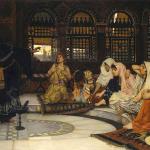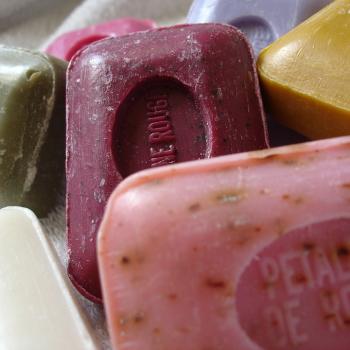Many, many years ago when I first began studying Tibetan Buddhism, I read every book I could find on the subject. After a few years of rabidly consuming everything ever published, I realized that I wasn’t learning anymore. It dawned on me that what I needed was a teacher. I needed someone who could bring lessons to life for me. As it happened, the moment I said that out loud, a teacher came into my life. I studied with my beloved Rinpoche for three years until he went on an extended hermitage. One of the last lessons my teacher gave me was to cultivate a relationship with my own inner teacher.
Another piece of advice I received was to study the magic and spirituality from “my people”, the land I come from. And that’s how I began my journey with Paganism. Throughout my journey I’ve had excellent teachers who have passed along subtle and profound wisdom or better yet, encouraged me to find my own wisdom. I’ve also run into a few egomaniacs and complete and utter assholes that loved hearing the sound of their own voice and wouldn’t know magic if it bit them on the arse.
Taking the good with the bad, I’ve developed a rubric of sorts of what makes a good teacher and the signposts that say “Warning! Run in the other direction as fast as you can.”

Transparency
Transparency is at the top of my list of positive teacher attributes. Who is this person? Who have they studied with? What’s their relationship to the subject matter they’re offering? I love to ask questions and if I’m going to study with someone, I want to know as much as I can about them. If a teacher is unwilling to share the details of the course or how they came to their own understanding of what they’re teaching , or what their aspirations are for the work, I’m always a little suspect.
The best teachers I’ve had over the years are those that share what the work means to them and can explain why. One dear teacher would start every class with “So this work saved my life”. They’d go on to detail certain pivotal moments where they relied on, leaned into, and held onto the magical work they’d learned to get them through some devastatingly challenging parts of their life. I always appreciated their candor.
Any time I teach, I want an underpinning of the work to be “Look, I’ve been through this forest. I can walk beside you as you go through this forest. I know where some of the pitfalls are, and I’ll point them out as we go along. Understand your challenges are likely to be different than mine. Know this one thing: There is a way through the forest. Someone was there with me. I’ll be there with you.”
It’s not about the teacher doing the work for you. It’s not about them knowing the only way through the forest. But it’s a good thing though, when they’ve been to the forest before and made it back!
Is The Teacher Also A Student?
Every great teacher I’ve ever studied with is still an avid student. I ask right up front who are they reading now? What are they currently studying, within and without the field of occult studies? What’s flipping their switch and making the lights go on?
A favourite teacher of mine asks every co-teacher or co-facilitator she works with this one question: What are you looking to learn by teaching this class? She’ll ask the question several different ways, but the root of it, comes back to that point every time. What about this class/workshop/subject is calling you right now? What do you need to learn by teaching this work?
I love this approach. It speaks of a certain humility and an unending curiosity.
Level Of Expertise
If I want to learn specific magical practices and skills, I do want to learn from someone that has a certain amount of experience with the material. Again, I’ll ask how long they’ve been a practitioner and who their teachers are. If the work was originally developed by Lilypad McTeacher, I’d want to know the process by which this current teacher came about the materials. If there’s any kind of cultural component to the subject, are they allowed to speak for that tradition and pass along the wisdom found there?
Going back to my Buddhism days for a moment. I’ve received many “empowerments” and I studied some pretty esoteric texts. I could certainly discuss them with you. We could have a lively chat about Emptiness and the Heart Sutra but I’m not qualified to teach you those mysteries. I can share my own experiences but have no authority to pass along the work.
In paganism, I’m initiated into three different traditions. In one of those, I am also an initiator and teacher. I’ve been a pagan for a long time and have dedicated the past decade to learning my craft inside and out from the perspective of a teacher and initiator. I’ve been an apprentice teacher and taught with many incredibly folk, who’ve added to my understanding of the tradition(s) I hold so dear. In one particular tradition, I do have the “authority” to pass along the mysteries.
Here’s an odd thing though. It doesn’t always follow that someone needs to be an expert in the subject matter they’re teaching to be effective. It is important that they are transparent about their level of expertise. I’ve taken amazing classes with people that clearly said “I’m interested in this subject. I’ve done some leg work and discovered X, Y, and Z. I’d like to share what I’ve learned so far and see if we can discover more together.” I’m totally okay with that, as long as I know it in advance.

Open For Feedback
This is a big one for me. How available is the teacher for feedback? If they seek out feedback that’s a good sign. Asking questions like “what could have made this class better for you?” shows they care about how the work was received. It’s one thing to be an expert on a subject, it’s another thing to be in service to the people that are coming to learn from you. That’s an entirely other skill indeed.
Asking for and valuing feedback is a way to improve how the lessons are conveyed. Offering different modalities, understanding that people learn in different ways, or that particular segments of the magic are only geared to a specific slice of the attendees are important pieces to consider. If a teacher doesn’t consider feedback, I’m unlikely to work with them again (or at all).
Boundaries
Boundaries are good, especially in all things magical. Clear boundaries are good boundaries. Every class I teach starts with agreements and boundaries. My teachers and my teacher’s teachers taught me that. Class starts at this time and ends at that time. The workshop will cover these subjects. Here’s how we’ll work with each other. This kind of behavior isn’t acceptable in this workshop. Yes, I can hang out with you after the workshop and have dinner. No, I won’t have sex with you and there’s no expectation that you’ll have sex with me. One more time with feeling: Boundaries are good, especially in all things magical. Clear boundaries are good boundaries.
Teachers with good boundaries tend to be excellent teachers.
Is The Teacher Too Self Referential?
Being overly self-referential is a real red flag for me. It’s perfectly okay to refer to the book the teacher published, or the website they manage, or the tradition they founded. It’s another thing to only refer to those sources. If I’m at a Pagan event and a presenter points to the body of work they’ve developed, that’s absolutely appropriate. If I’m undertaking a course of study with them, I’d like to see other materials too.
I once worked, albeit briefly, with a brilliant teacher. There was just one problem. Almost any question I asked was met with the answer “it’s on the website” or “read my second book, the answers you seek are there”. The information on the website would change as they “dreamed” more on the tradition they were creating and prior “sacred knowledge” was to be dismissed or worse yet, it was claimed it “never existed”. RED FLAG!
As you might imaging, I ran far away and very fast.

The Cost of Hidden Knowledge
I understand that many traditions, especially mystery traditions, dole out knowledge at certain times. There are degrees or thresholds, or info for initiates only. That’s all well and good. I like that actually. However, what is really problematic is the cost of said hidden knowledge. I’m not talking financial costs here either. To become a 10th degree priestess in the “Super Cool Magickal Kids Club” you have to sell your house or have sex with all the other high priestesses or leave all your worldly possessions to the coven or you can never associate with anyone outside of the 10th circle. These are the costs I’m talking about.
It’s okay (not really) if these are conditions of the tradition, but when are these costs disclosed? If it’s upfront, okay (I guess). I’m going in wide eyes open. If it’s two minutes into the workshop or initiation ceremony, um…not cool.
Student Collectors
Here’s a deal breaker for me too. I’ve known teachers that refer to everyone, anyone that’s ever taken a class from them as “my students”. “Unicorn Witchpants was a student of mine before they started their own tradition”. There’s this icky thing about teachers that collect students and can’t ever see the participants in their workshops or courses as anything but students, no matter long ago that was.
I was a participant in a three day workshop once, that doesn’t make me “your” student for life. Eew!
Some Teachers Just Smell Bad
This is not about personal hygiene. A beloved mentor of mine once remarked that certain people just don’t smell good to them. Here’s what they meant: We don’t have to like or get along with everyone. Not everyone is meant to be our teacher. We are not meant to be a student of every person that wants to teach. Sometimes we just don’t mesh. It’s nothing personal.
This is a vital lesson to learn. Discernment is often our least employed magical tool. If you get that oogie feeling about someone, trust it. Doesn’t mean they are a bad teacher or that you are a bad student. It just means something is off right now. Go with that. Leave the seminar. Respectfully walk out of the ritual. No explanation is needed (although, in my classes, feedback is welcomed!).












